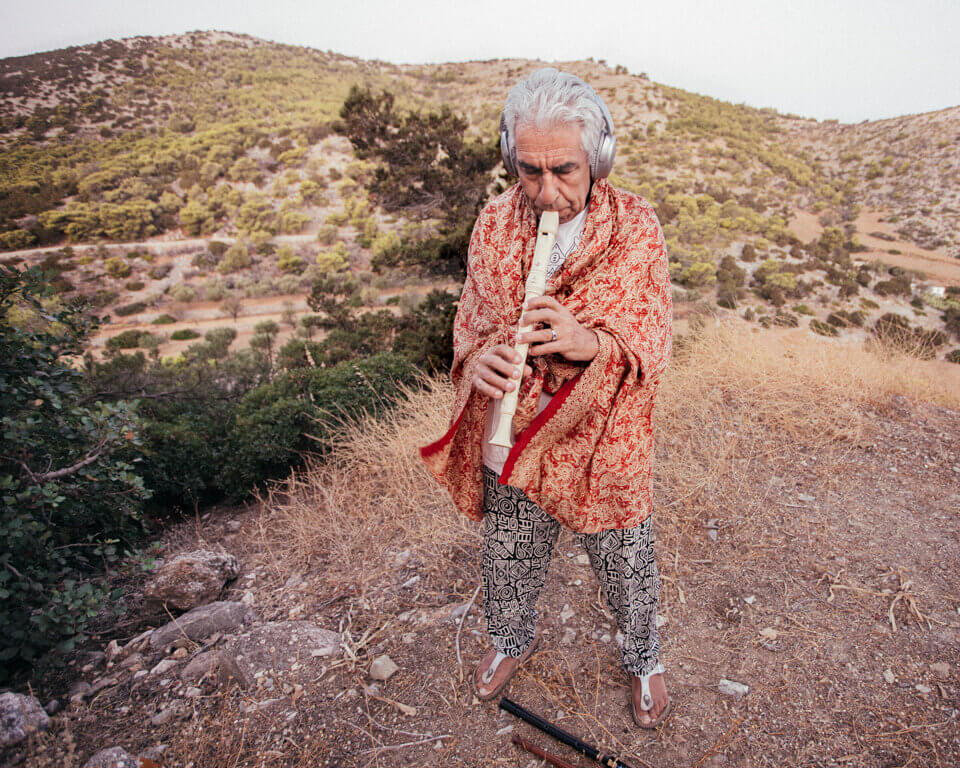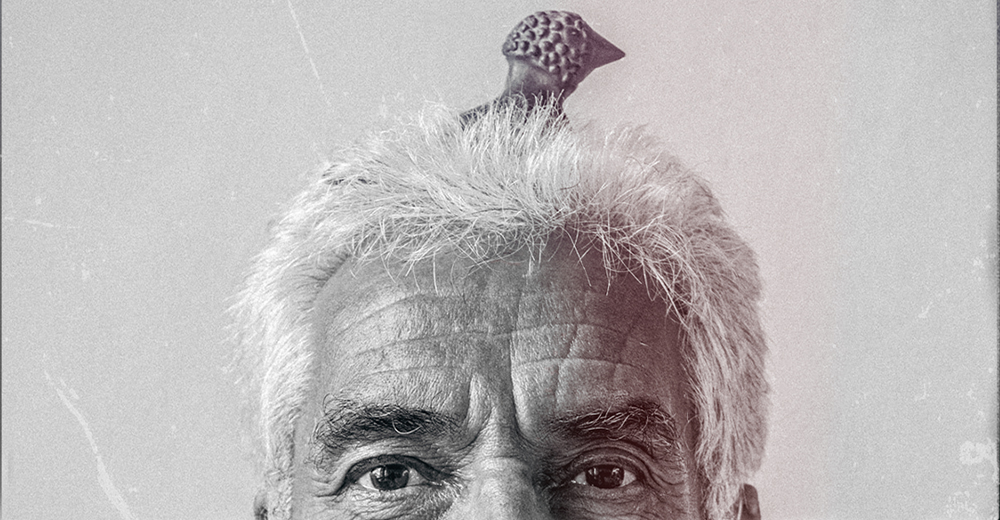Interview: Ariel Kalma
In September 2019, Ariel Kalma visited Hydra Island and stayed at the Old Carpet Factory for a week-long recording session culminating in a concert for the goats up in the mountains of Episkopi, a remote and beautiful area. On the day of Ariel's scheduled departure, a strong wind came, raising waves that cancelled all the ferries and interrupted the connection to the mainland for three days. Here, Ariel Kalma talks to curator Ekaterina Juskowski about his career, music, Hydra, and the difficult business of becoming a better person.
Ariel Kalma @arielkalma
Writing and Photography by Ekaterina Juskowski @juskowski
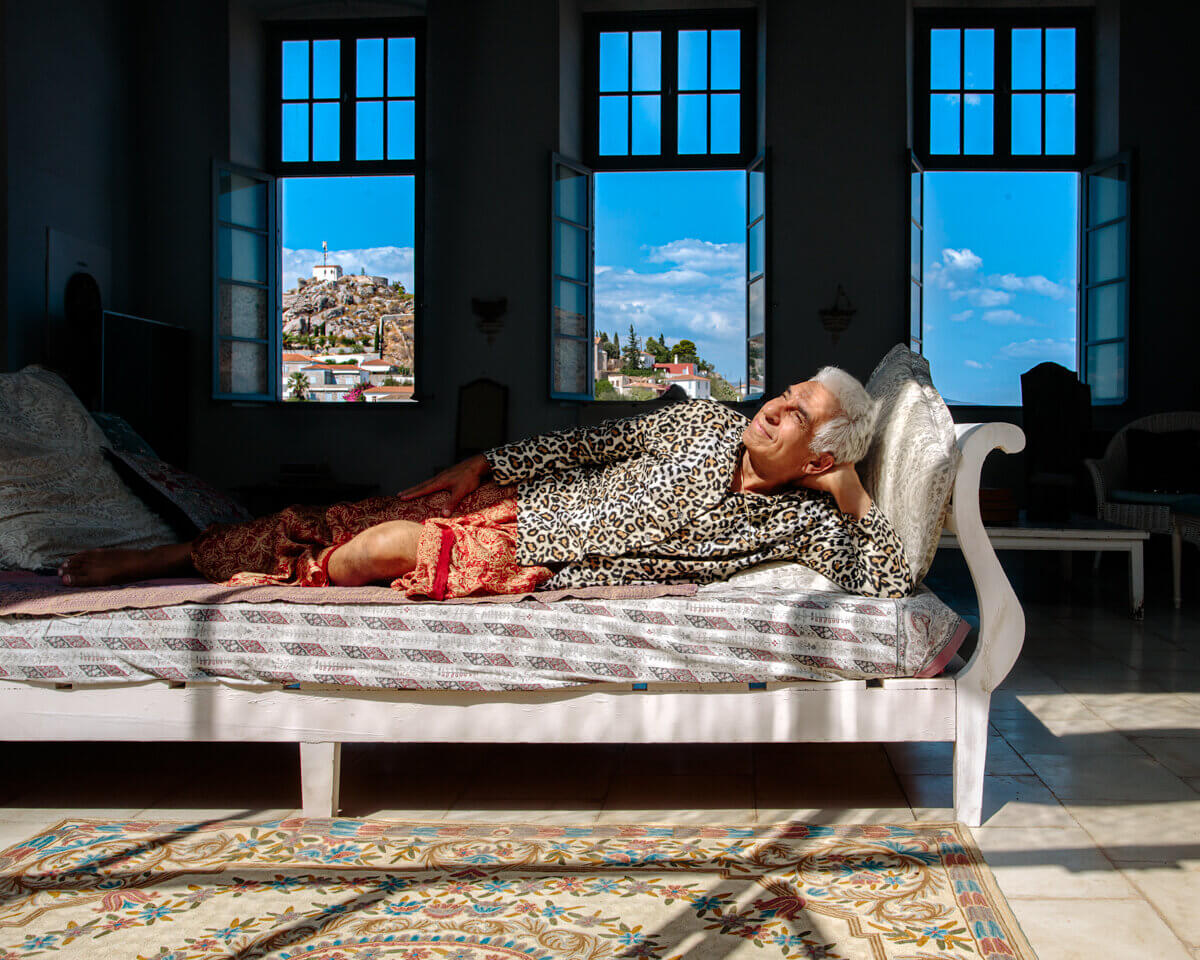
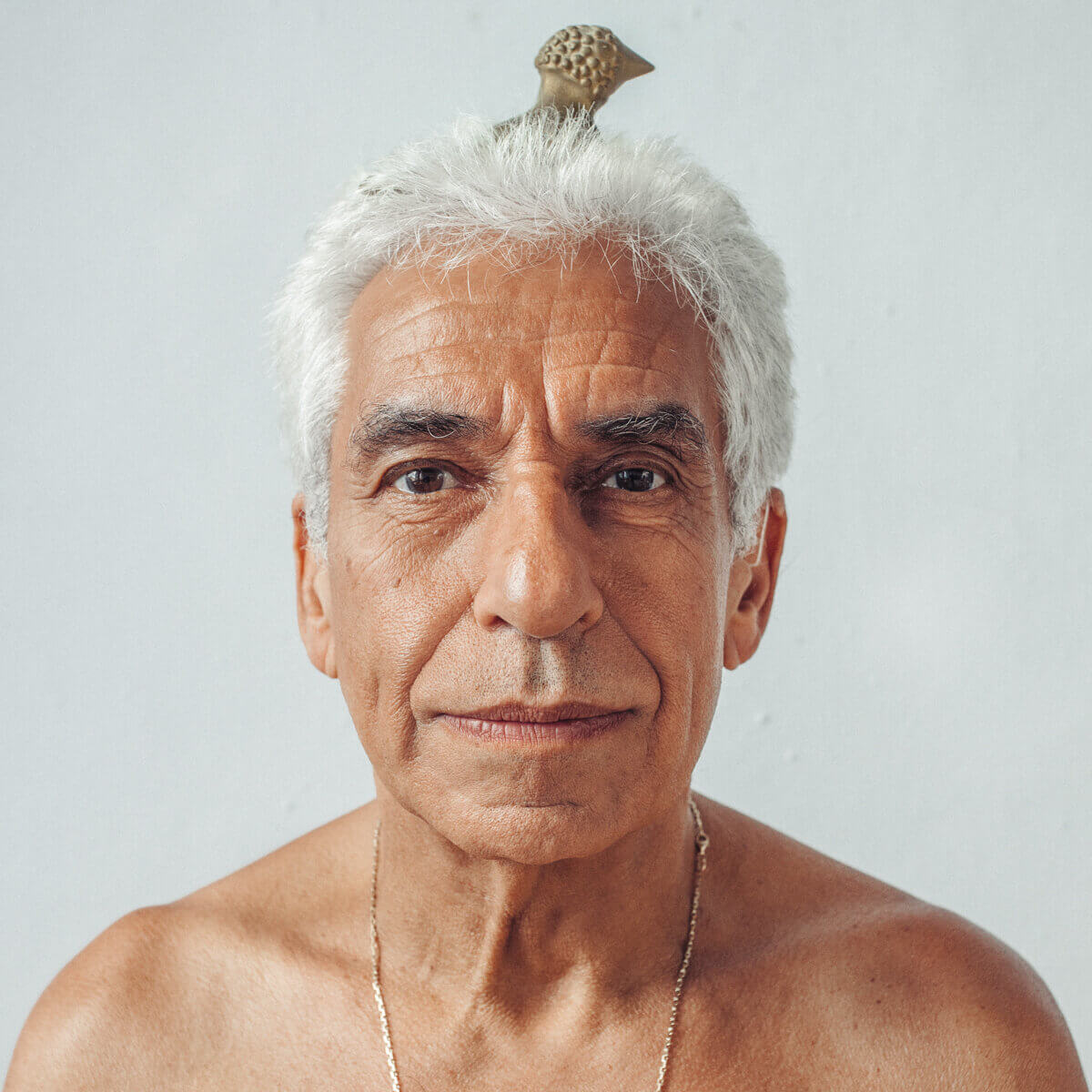
Ekaterina Juskowski: Ariel, your summer was quite busy: touring Europe’s major cities, releasing your previously unheard 1970s tape archives on vinyl, and captivating audiences with an underwater music performance in one of the largest Moscow's pools where you played alongside the multi-instrumentalist and New Age pioneer Laraaji at the Red Bull Music Festival. What brings you to Hydra?
Ariel Kalma: I’m on Hydra thanks to an invitation from an Italian collective“Il Vulcano” to record and film a ritualistic performance curated by Margherita Chiarva. The collective functions as a research group focusing on the tribal aspects of sound, from its origins to its most contemporary manifestations. Their projects often take place on islands, emphasizing the ritualistic and collective dimensions of the musical experience. When Margherita Chiarva approached me with the idea of a duo improvisation with Turkish musician Gorkem Sen, I was thrilled. Our performance took place in nature, in the secluded village of Episkopi at the top of the island, where we played for twenty-four hours in response to our surroundings, in the presence of a small audience. The team from Old Carpet Factory recorded the sound, and the studio became an ideal base in the days leading up to the performance.
EJ: You and Gorkem Sen share some common aspects in your musical careers: just like you, he initially studied Computer Science and came to music from the sound engineering background; just like you, Gorkem is driven by the search for the original sound, which ultimately led him to the invention of the Yaybahar. How was the experience creating together?
Ariel Kalma: It was a wonderful meeting of like-minded souls. However, “absent-minded souls” fits better in our case. I had never met Gorkem before coming to Hydra and only heard the sound of Yaybahar for the first time at the Old Carpet Factory. The acoustic-treated soundproof recording room and Neumann and Earthworks microphones available at the studio impressed me enough to record some test tracks with Gorkem ahead of our Nature Performance in Episkopi. Finding the common language with Gorkem was easy. We played along my electronic setup as I blew didgeridoo, played saxophones and flutes in my long loop system. We created great music together. The superb sound quality of the Old Carpet Factory recording studio only enhanced the experience.
The praise of your early works from the 1970’s is univocal, absolute and abundant. There is also a heightened enthusiasm around the projects you did in the recent years. What happened to you during the three decades in between? Did you go on hiatus?
Not in the creative sense. I never quit practicing my instruments and continued recording, but commercial success was never my main focus. Music industry is a trap and I didn’t want to be in that system. Anyone with a talent can easily climb in popularity. I personally needed to develop my spiritual strength first and not be convinced by religion or society. The most important thing for me was to become a good human being. In my case it was very easy to stay focused on the spiritual growth because in the beginning nobody liked my music. Nobody wanted it, so I had very few distractions. In the 1970s and 80s I was lucky if fifty people showed up to my performances, with only five audience members making it to the end.
The business of becoming a better person took me to some very nice places - places where there is a value in the total human potential. And there is a lot to say about potential because the word potential acts like a “verb,” it's not fixed, it implies constant changes and growth. While exploring it, I became more successful on the inside.
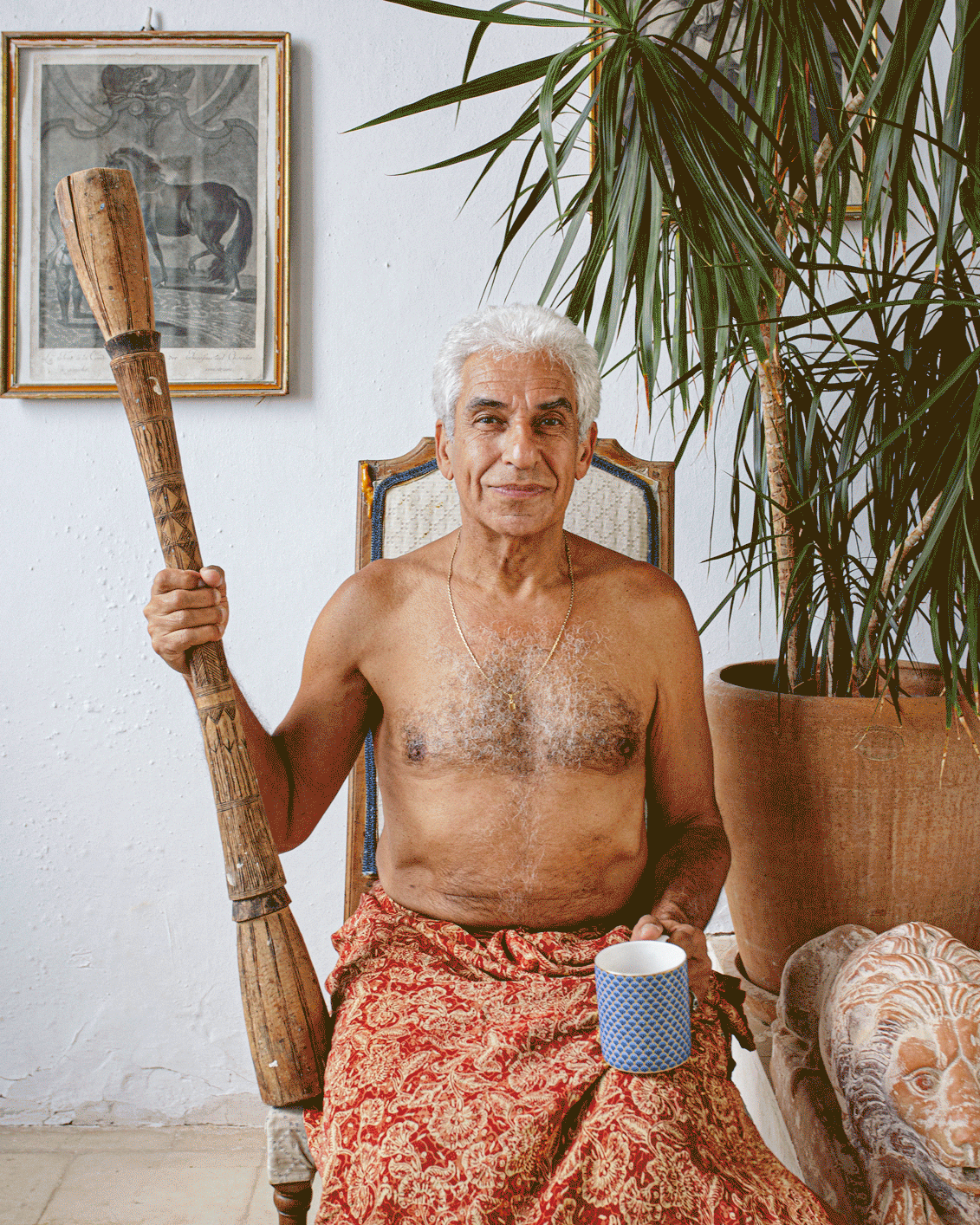
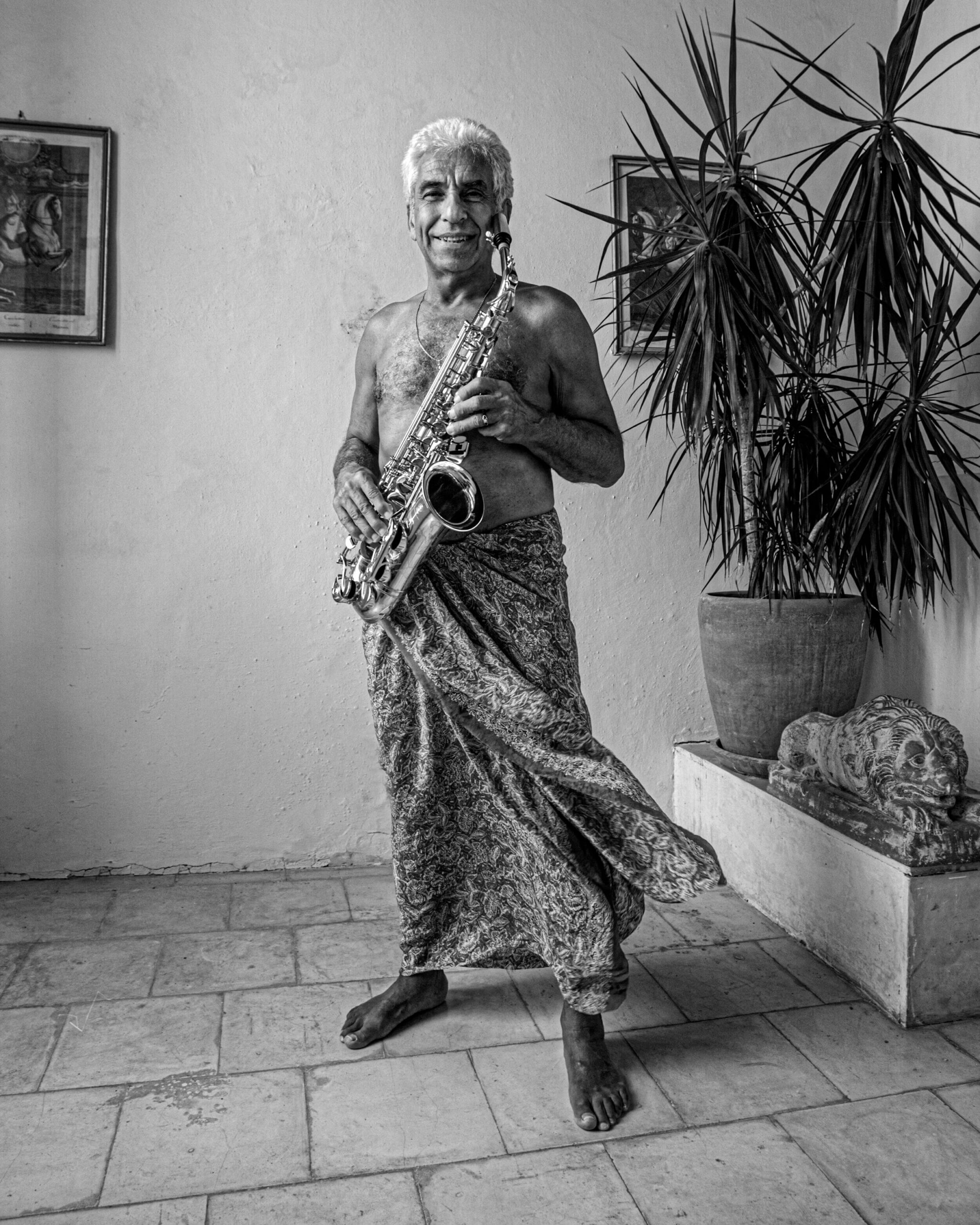
Two places that profoundly influenced your career are geographically distant and polar opposites symbolically, representing nature vs technology, spiritual vs mechanical, ancient vs modern. These two places are India, where you spent one year in your late twenties studying music, working on your spirituality and learning breathing techniques, and the Groupe de Recherches Musicales (INA GRM) studio in Paris, founded by Pierre Schaeffer, where you explored radical innovations in 20th-century music by merging it with science, technology and engineering. How does one reconcile such contrasting experiences and what lessons can be learned from them?
Before I found myself, I managed to get very lost. When I was twenty-eight years old, a concerned friend gave me a one-way ticket to India four days before the departure date. So I took the chance and went.
India put me into a cultural shock. At that time the country remained pure, rather isolated from the influence of the Western culture. People had very little in material terms and endlessly more spiritually. I used my time there to nurture my spirit and to develop my ear. The Indian musicians I admired spoke a completely different language, unfamiliar to me at the time. From them I learned the meaning of concepts like “going to the end of what you want to say,” “telling the story with your music,” “never finishing what you are talking about.”
Another cultural shock came upon my return to Paris. The entire society seemed to be composed of soulless people. Comparing all the Paris experiences to India, I thought "what a waste!" It took me a while to readjust. Then a school friend, who was a technical director at the INA GRM studio, offered me a position of an assistant engineer. The job exposed me to new technology, introduced me to the innovators of the music world such as Philip Glass, and to avant-garde ways of expression. While at the studio I developed the long loop system and recorded some of the most significant personal works. The collection “Nuits Blanches au Studio 116” released in June of this year on vinyl by Transversales Disques was recorded during that time in the INA GRM at night after work and during the weekends.
Because of these experiences, I cannot help but be modern, yet my thoughts often dwell in ancient times. Electronic music and the Vedas are always on my mind.
Which work do you consider your magnum opus? Have you recorded it or is it yet to come?
“Le Temp des Moissons” (The Time of Harvest) album will carry through time and space – it is “timeless” and “spacious” enough. It embodies the spirit I had after returning from India. I named the album with the future in mind. After pressing 1000 copies I ran out of money and had to get creative. I purchased 1000 blank sleeves, traced my hand on every one of them and signed each copy by hand.
What are your most memorable moments from Hydra besides cancelled ferries back to Athens, missed flight back to Australia and being stuck at the Old Carpet Factory for extra two days due to strong winds?
The welcome at the Hydra port upon arrival was unforgettable. The donkeys, learning that there are no cars on Hydra and the steps: to get to the house one has to walk your way up from the harbor while donkeys carry the luggage. The light is fascinating here: the white of the houses and the blue of the sea. The ancient feeling you get while walking through the streets, the polished stones... picturesque! And of course, the unexpected two days of uncertainty, being stranded on Hydra due to bad weather miles away from home when one has no other choice but to surrender to the circumstances of life.
